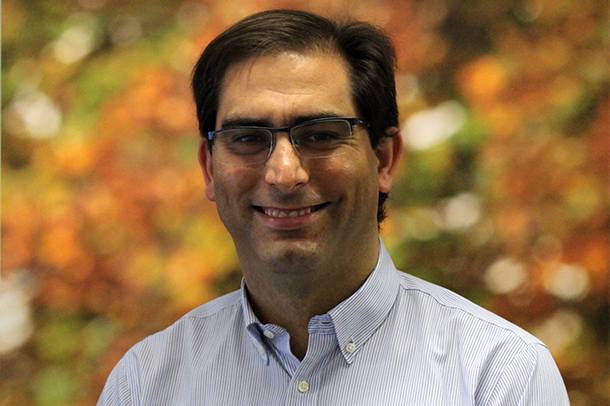News
LATEST NEWS AND EVENTS FROM THE SCHOOL OF ENGINEERING
Precision oncology and artificial intelligence
"The range of targeted therapies for tumours that are highly resistant to conventional chemotherapy treatments is growing".

04 | 02 | 2022
On the occasion of World Cancer Day.
Francisco Planes, Full Professor in Artificial Intelligence and Deputy Director de Investigación de Tecnun
Two years ago, shortly before the outbreak of the Covid-19 pandemic, I commemorated World Cancer Day by being optimistic about the fight against this disease. My optimism was based on the growth of precision oncology, a new research paradigm that recognizes the heterogeneity of tumors and the need to apply personalized and targeted therapies to each patient, using information from high-resolution molecular technologies such as genomics. In turn, he perceived an increasingly suitable research environment, with more and better data at a more affordable price, greater storage capacity and computing power, and professionals with high training in artificial intelligence and bioinformatics. All of this fed the general enthusiasm for the results of the many projects we have underway.
It is undeniable that the Covid-19 pandemic has negatively affected the fight against cancer on several levels. Firstly, for the patients themselves, who add an additional complication to their disease, making the application of already complex treatments more difficult. In addition, the health blockade caused by the pandemic has delayed the diagnosis and treatment of new cancer patients, with the consequent toll on their health. This is no small matter because early diagnosis substantially increases the chances of cure for most patients. Against this backdrop, the results of precision oncology may seem to be blurring and one wonders where we are and where we are heading two years later.
The good news is that research in precision oncology has not stopped in these turbulent times. The range of targeted therapies for tumours that are highly resistant to conventional chemotherapy treatments is growing. A few months ago, the US Food and Drug Administration (FDA) approved the first drug targeting lung cancer patients with a specific mutation in the KRAS gene (KRAS G12C), a genomic alteration previously associated with a very poor prognosis. Tumours with this particular mutation were, until now, considered resistant to drug therapies, so this news reaffirms the value of science and brings a dose of hope .
Therefore, precision oncology is a reality that we now have and in the coming years panels of genomic markers will be used at clinical practice to optimize cancer treatments. In this sense, one of the great challenges facing our healthcare system will be to efficiently integrate and manage the technological platforms needed to identify these tumor characteristics.
However, in the field of research, we are increasingly aware that this is not enough. The path taken towards the patient - and not only towards the disease - requires holistic approaches and multidimensional studies that go beyond the characterization of these alterations in tumors. To cite a few examples, single-cell technologies are helping us to better define the tumor ecosystem directly involved in the patient's resistance to therapy. Other metagenomics technologies are helping us to understand the role of the intestinal microbiota in the development of tumors and in the immune response of a sick person. Also of great utility are metabolomics technologies that allow us to identify nutritional dependencies of tumors and personalized diets that can fill in oncology treatments. Whether we will be able to reach goal and develop personalized treatments will depend on our ability to integrate this vast and diverse amount of data and transform it into useful and practical knowledge for the patient. There is no doubt that the future of precision oncology lies in the hands of big data and artificial intelligence.
